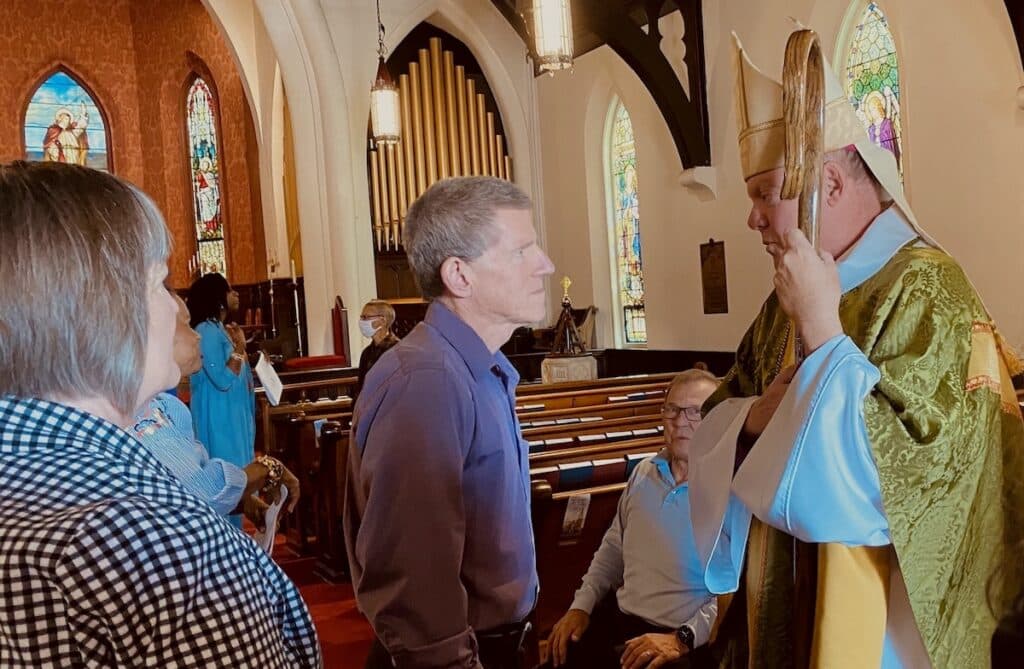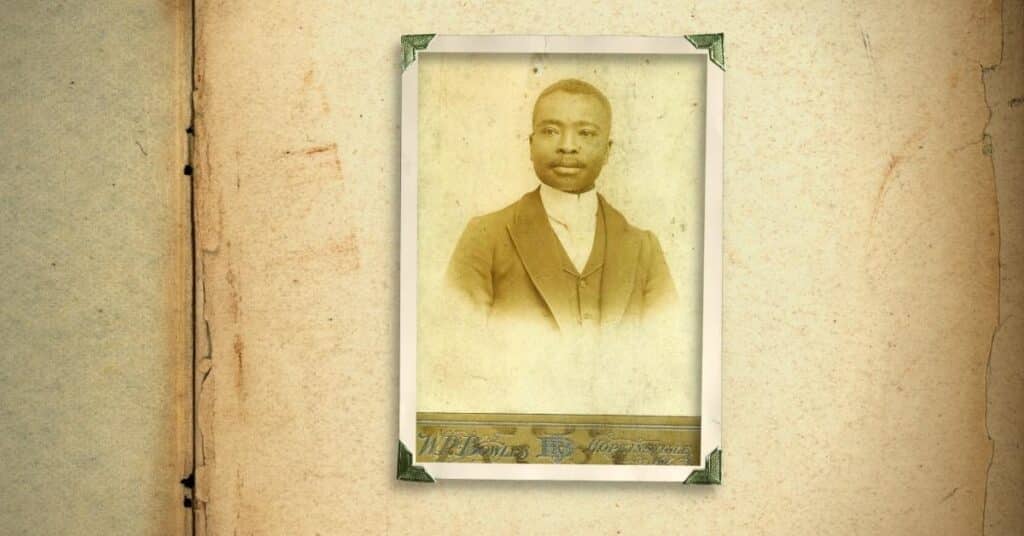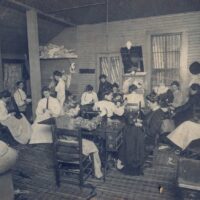A version of this article first ran in The Sunday Brew newsletter. Get stories like this one delivered to your inbox by subscribing to Hoptown Chronicle’s newsletters.
The purpose of honoring the Rev. Alexander Hamilton McNeil — for his ministry more than 100 years ago in Hopkinsville — came into focus Saturday during a service at Grace Episcopal Church.
Known today as the inspiration for the Aaron McNeil Center, the Black clergyman settled in the community in the early 1890s to help establish the Chapel of the Good Shepherd. Sadly, he died less than 10 years after his arrival, apparently of a stroke. He was 41 years old.
Saturday’s service was led by the bishop of the Kentucky Episcopal Diocese, the Rt. Rev. Terry Allen White, and organized by the diocese’s Commission on Racial Healing. It is part of an ongoing racial reconciliation effort that illuminates the historical significance of Black clergy like McNeil.

Grace’s rector, the Rev. Stephen Spicer, gave a commemoration that detailed McNeil’s remarkable impact in Hopkinsville — in addition to his many hardships and the sparse historical record of his life and work.
Shortly before his death, McNeil had passed exams that would have resulted in his ordination as an Episcopal priest. Then-Bishop Thomas Underwood Dudley noted the stress McNeil must have experienced in his quest to become a priest.
Spicer read the following from Bishop Dudley’s 1901 annual address:
“The Rev. Alexander Hamilton McNeil, Deacon, entered upon eternal life from his home in Hopkinsville on January 14th last. Born, I think, of parents in slavery, his had been a most varied career before he finally attained the long-desired privilege to minister the gospel of the grace of God to the people of his race. … He had just passed, most creditably, his examination for Priesthood when the end came. Perhaps his intense anxiety as to his success in this endeavor to be advanced to the Priesthood, and his excessive study in preparation for these examinations, had much to do in causing his death. All untimely did that death appear to our human eyes. He had won the confidence of the people of both races in Hopkinsville, and was perhaps the most influential colored man in the city. He was a good man and did good work.”
Spicer observed, “… if Bishop Dudley’s thoughts are accurate, why would we ever work a man to death, just to give him what he has already proven he could do? Even the history we find, the story we uncover is difficult and sparse. Not because there wasn’t much to tell but because of the color of his skin, most papers weren’t writing of these equally important stories.

“This process of putting flesh on the dry bones of people of color, lost to time, is something that we, as a church, both on the national and diocesan levels are beginning to grapple with. I pray that we will soon begin this hard work on the local level as well. And I am encouraged by the progress we have begun here in Hopkinsville with the example of bell hooks and in this parish with A.H. McNeil. But there is still work to be done. We all have work to do, to discover and tell untold stories, to illumine acts of injustice in our midst, and to honestly face the injustices of the past and present.”
(You can read Spicer’s entire sermon here.)
Today, the Aaron McNeil Center serves as a crisis relief agency in the church building that McNeil helped establish at the corner of Second and Campbell streets. The center’s food pantry serves 280 to 290 people every month. Its monthly food commodity box distribution, through Feeding America, helps 950 households, feeding about 2,100 individuals. The center also gives financial assistants to local residents who need help paying utilities and other essentials, said executive director Kurt Anderson.
While the center’s work continues, so will the Episcopal church’s efforts to more fully acknowledge McNeil’s impact in the community.
At the conclusion of Saturday’s service, Bishop White said the diocese will host another service honoring McNeil at the Hopkinsville church in one year. At that time, he expects to make a formal recognition of McNeil’s life as a blessing in the community.
(Editor’s note: Jennifer P. Brown is a member of Grace Episcopal Church and serves on its vestry.)
Jennifer P. Brown is co-founder, publisher and editor of Hoptown Chronicle. You can reach her at editor@hoptownchronicle.org. Brown was a reporter and editor at the Kentucky New Era, where she worked for 30 years. She is a co-chair of the national advisory board to the Institute for Rural Journalism and Community Issues, governing board past president for the Kentucky Historical Society, and co-founder of the Kentucky Open Government Coalition. She serves on the Hopkinsville History Foundation's board.





